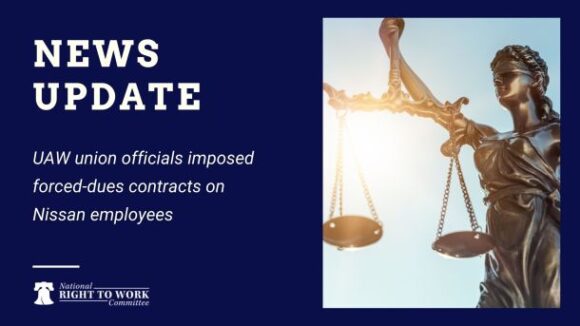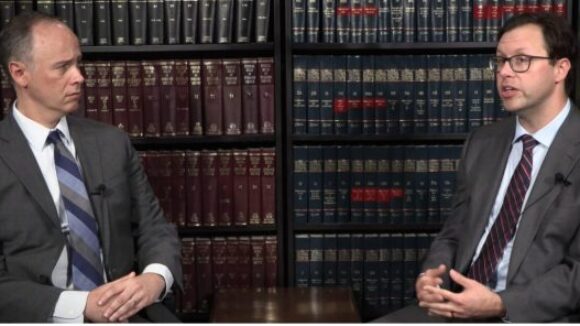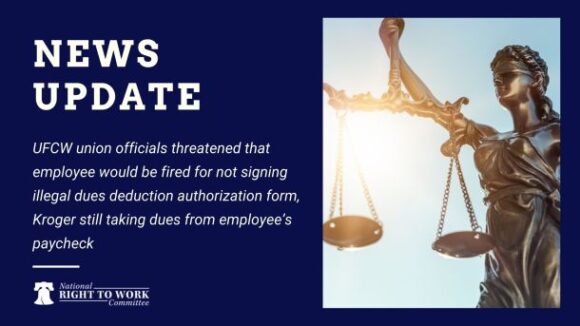Somerset, NJ, Nissan Parts Distribution Center Employees File Petition for Vote to Kick Out UAW Union
UAW union officials imposed forced-dues contracts on Nissan employees
The American Spectator looks behind the curtain at the man primarily responsible for turning the National Labor Relations Board into a vehicle for big labor advocacy — former SEIU General Counsel Craig Becker. But in doing so, Becker violated ethics pledges made by his boss, President Obama.
For the last few months, Boeing has been clashing with the National Labor Relations Board (NLRB) over its decision to locate a plant in South Carolina. The NLRB argues that the airplane manufacturer illegally moved work from union factories in Washington state to a new $1 billion facility in the right-to-work Palmetto State.
NLRB lawyers maintain this is straightforward retaliation against union workers, based on comments allegedly made by Boeing executives themselves. Business leaders have denounced this as an unprecedented bit of federal pro-union advocacy, with the House of Representatives last week voting to halt the Boeing case and others like it.
The battle may soon intensify. Federal financial disclosure forms reveal that Craig Becker, a key union-friendly vote on the NLRB, owned stock in Boeing at the beginning of this year. Becker is one of federal agency’s Democratic board members.
According to documents obtained by the National Right to Work Committee, as of January 2011 Becker owned between $1,001 and $15,000 in Boeing stock, earning between $201 and $1,000 in dividends. This particular public financial disclosure report does not require more specific information.
The disclosure already has people detecting a potential conflict of interest. “The fact that Mr. Becker owns or owned stock in Boeing could be extremely detrimental to the NLRB’s case against that company,” says F. Vincent Vernuccio, labor policy counsel at the Competitive Enterprise Institute. “If Mr. Becker currently owns stock in Boeing then he should recuse himself from hearing the case.”
Any recusal could imperil the NLRB’s ability to take the Boeing case at all. Since former member Wilma Liebman’s term expired, the normally five-member board is down to just three members. “The Supreme Court recently ruled that the NLRB must have three members or there will be no quorum,” says Vernuccio. “If Becker is not able to sit on the case there can be no decision for Boeing.”
Another labor policy watcher familiar with Becker’s Boeing investment acknowledges it is a relatively small amount of money. “But how big does it have to be before there can be a conflict of interest?” he asks. “It’s not like there is a minimum where it would be okay.”
Becker, a perennial labor lightning rod, has faced calls to recuse himself before. A former lawyer for the AFL-CIO and SEIU, Becker said in a footnote to a June 2010 ruling that he would recuse himself from cases in which either of those unions was a party. Becker cited compliance with the Obama administration’s ethics policy as his reason for bowing out of those decisions.
But Becker also said that he would not recuse himself from cases involving chapters and local affiliates, arguing that they are separate and distinct legal entities from the national unions. Congressional Republicans blasted this as a meaningless concession, since most cases he would hear arise from the locals, from which the national unions collect dues.
“There’s clear reason to question Becker’s impartiality,” a spokesman for Rep. Darrell Issa (R-CA) told the Washington Postlast year. “His former employer, SEIU International, tightly controls its local chapters. With such gaping loopholes, the Obama administration’s ethics pledge Becker signed isn’t worth the paper it was printed on.”
Last month, Sen. Orrin Hatch (R-UT) sent Becker a letter asking him what role he may have had in drafting an SEIU manual instructing union organizers on how to pressure businesses. Critics have called the document the SEIU’s “Intimidation Manual.” During his Senate confirmation hearings, Becker acknowledged providing advice on organizing and contract campaigns.
Becker failed to win Senate confirmation when Republicans — joined by some Democrats from less union-friendly states — blocked his nomination. The Wall Street Journal dubbed him “Andy Stern’s go-to guy” and “labor’s secret weapon.” Becker received a recess appointment from President Obama. His term will therefore expire at the end of this year.
The Boeing disclosure will only add fuel to the fire. The Boeing case is arguably the biggest labor controversy of the Obama administration, and Becker is seen as emblematic of this White House’s tilt in favor of unions against businesses in a challenging economic environment.
Vernuccio doesn’t think selling the stock will get Becker off the hook. “If Becker sold the stock after the case was brought this could point to more serious ethical issues, showing he knew the case could hurt Boeing stock,” he says. “Either way Becker’s ownership puts a new wrinkle in the case and may affect its outcome.”
It will be difficult for the president to get more NLRB members confirmed because Republicans have increased their ranks in the Senate since the filibuster against Becker, and several Democratic senators from right-to-work states are up for reelection next November. Additional recess appointments are likely also out of the question, because House Speaker John Boehner has pledged to block further recesses for the remainder of Obama’s term.
Most previous demands that Becker recuse himself from such cases have fallen on deaf ears, however. (A card check case was an exception.) In fact, critics have pressed him to remove himself from the Boeing case before because the machinists union filing the suit is an AFL-CIO affiliate. The NLRB’s inspector general has ruled in favor of Becker on these questions in the past.
The Boeing holding gives critics yet another shot at Becker. Even advocates for the workers of the world have to watch out for their stock portfolios.

UAW union officials imposed forced-dues contracts on Nissan employees

A new federal lawsuit from a National Right to Work Foundation-backed Starbucks employee, currently pending at the D.C. District Court, could upend the federal agency and result in a ruling that the current Labor Board’s structure violates the Constitution.

UFCW union officials threatened that employee would be fired for not signing illegal dues deduction authorization form, Kroger still taking dues from employee’s paycheck